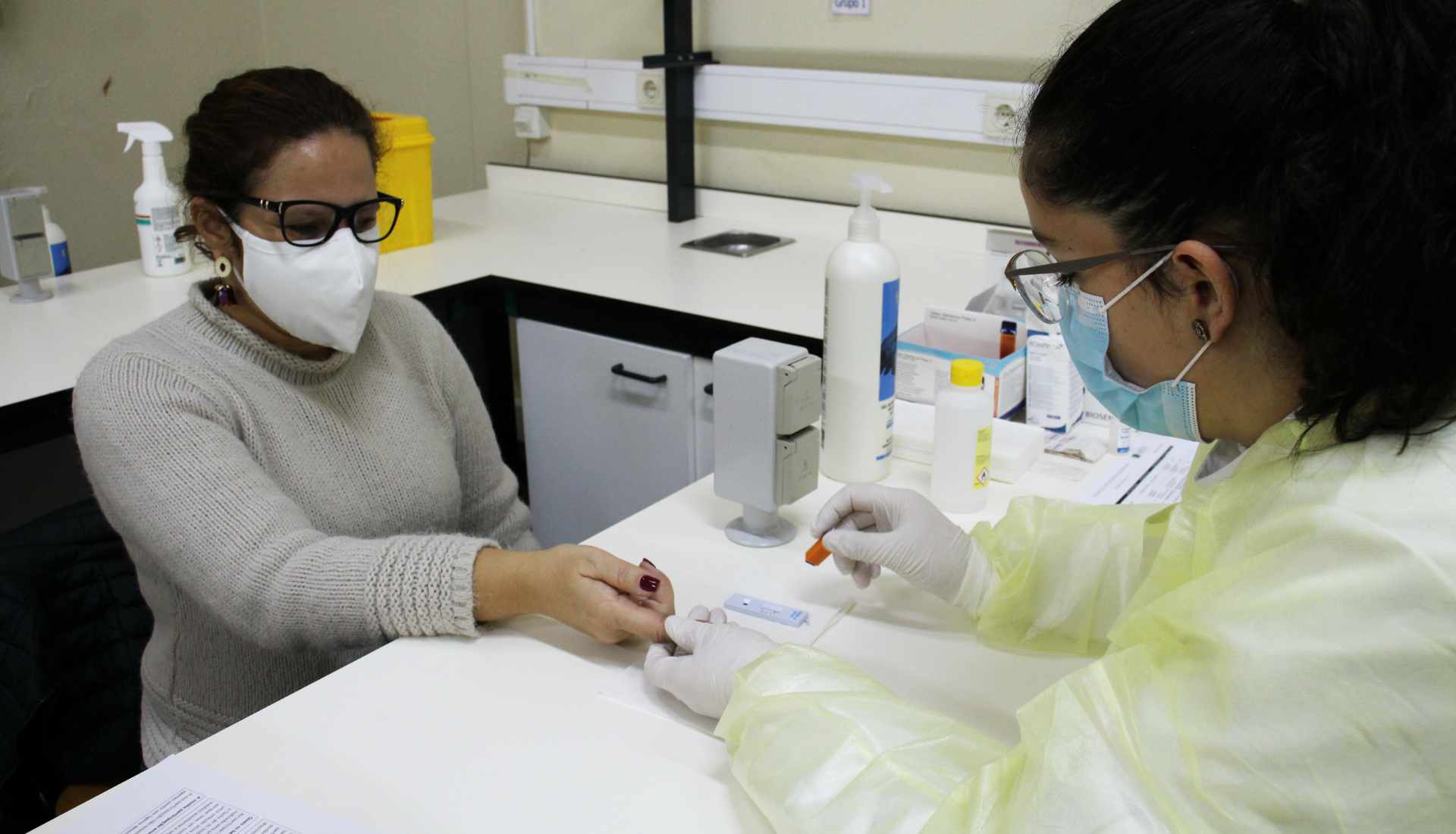How did the COVID-19 pandemic affect the mental health of university students and influence young people’s social interactions and their experience with online teaching? A study by the Instituto de Saúde Pública da Universidade do Porto (ISPUP) sought to answer this question, using a sample of students from the University of Porto.
The longitudinal research, which took place over 18 months, found that students’ satisfaction with online teaching and social interaction decreased with the pandemic, and that the number and severity of depressive symptoms increased significantly between October 2019 (pre-pandemic period) and March 2021 (time of the second lockdown in Portugal due to COVID-19). It was found, however, that this increase in moderate and severe depressive symptomatology did not translate into greater help-seeking behaviours by these young people.
As explained by Ricardo Gusmão, senior researcher at ISPUP, professor of Mental Health at FMUP, and coordinator of the Laboratory for Mental Health Literacy, Wellbeing, Depression and Suicide Prevention, of the associated Laboratory for Integrative and Translational Research in Population Health (ITR), “the COVID-19 pandemic had an enormous impact on the lives of citizens. In Portugal, as in most countries, we experienced numerous restrictions that limited social interactions, and imposed changes to our lifestyle. These changes have affected everyone without exception, namely university students, an age group in which the incidence of mental illness, particularly depression, is much higher than any other population group, and is therefore considered a risk group.”
“The restrictive measures that led to the closing of universities, the introduction of online teaching and the limitation of social interactions have affected the mental health of this age group. Previous studies have described increased fear, worry and stress among students. This is to be expected in any crisis situation, there is nothing unexpected or new about it, and the vast majority of these individual situations need wellness promotion rather than specialist clinical care. In our study, contrary to most published research, we looked at the students who presented expressive, moderate to severe and very severe symptomatology, very suggestive of being at a high-risk for anxiety and depression disorders. On the other hand, almost all the studies that have been conducted are either transversal or started after the pandemic, not having followed this population group throughout time and before the beginning of the pandemic”, he explains.
Ricardo Gusmão stresses that the ISPUP article is innovative because it is longitudinal and was started before the pandemic. “It was an opportunity. The research began before the outbreak of the pandemic and followed the students of the University of Porto over time, until the time of the second lockdown, which allowed us to extract robust causal links,” he adds.
With this study, the researchers intended, on the one hand, to assess the impact of the lockdown measures imposed by COVID-19 in the trajectory of moderate and severe symptoms of anxiety and depression disorders in university students, analysing the evolution of this symptomatology throughout the pandemic; to understand the students’ level of satisfaction with online teaching, their satisfaction regarding their social interactions and the changes recorded in sleep patterns.
But the main aim was to study the effects of the pandemic on the help-seeking behaviour and access to health care of young people with moderate to severe symptomatology, who evidenced a clear need for care.
A total of 366 students who were attending the first year of any undergraduate degree at the University of Porto were included in the study, something which can also be considered innovative, given that most research in this area focuses mainly on students in the field of health sciences.
The participants answered an online self-assessment questionnaire at three moments – October 2019, June 2020, and March 2021 – for a follow-up period of 18 months. It was possible to collect sociodemographic information about the young people, including the existence of previous mental health care, their level of satisfaction towards online learning and level of satisfaction regarding social interactions. In 2020 and 2021, students were additionally asked whether they knew someone who had contracted COVID-19 or whether they themselves had been infected with the virus.
Anxiety and depression symptoms were assessed using the Portuguese versions of the PHQ-9 (for depressive symptoms) and GAD-7 (for anxiety symptoms) questionnaires.
Ricardo Gusmão points out that “these instruments do not allow us to establish a diagnosis of depression or anxiety (diseases), but more so the presence and severity of symptoms of these pathologies, allowing the attribution of a score. Unfortunately, the profusion of studies that have appeared on the impact of the COVID-19 pandemic on ‘mental health’ often present an unsatisfactory methodological and conceptual quality, often due to the inadequacy of the assessment instruments in relation to the population under analysis, and the irrelevance of the results, which do not allow to ascertain needs in ‘mental health’ that can be matched from a public health perspective.”
“In our study, adequate instruments were used to measure depressive and anxious symptomatology in this population, through an online survey. The cut-off point used for the case definition corresponds to a very high probability of finding students with an absence of ‘mental health’ and in need of intervention,” he explains.
The majority of the 366 research participants had an average age of 22 and were female (71.3%).
In an initial period, there was an increase in anxiety symptoms, which then remained constant. However, between October 2019 and March 2021, there was a significant rise in depression symptoms in this sample. In 2021, almost half of the students showed symptoms of moderate to severe depression.
The level of satisfaction towards online teaching decreased, although not significantly, and satisfaction towards social interactions decreased considerably between 2020 and 2021. Of note, participants with more severe symptoms of depression and anxiety showed more dissatisfaction towards the online teaching format than students with fewer symptoms.
In line with what has been described in previous studies, most students reported sleeping fewer hours and going to bed later than before the pandemic began.
It is noteworthy that despite the significant increase in clinical symptoms associated with depression, there was no greater demand for professional help on the part of the students. In fact, more than 50% of young people with symptoms of depression or moderate or severe anxiety did not resort to treatment during the pandemic.
For Ricardo Gusmão, these results are not encouraging. “We realized with this study that these students with significant levels of symptoms, suggestive of active disease, who tended not to seek help before the pandemic, due to the outbreak of COVID-19 and consequent isolation, sought even less support from professionals.
Given the results found in the article, the researcher underlines that “there is a need for interventions that promote well-being and resilience in Academia and prevent mental illness. But, at the same time, it is necessary to have effective secondary prevention mechanisms to help those who are in effective suffering, are sick, and who are at risk, not only of academic failure, but also of attempting against their own lives”.
“I would say that it is urgent to increase, in a sustainable way, mental health literacy in the academic field, namely, the literacy of students, teachers and other academic staff, so that everyone knows how to identify the situations that require specialized assessment and the appropriate interventions, being equally crucial to invest in referral systems to services that correspond to their needs and that provide the necessary responses to the problems identified,” he concludes.
The article, entitled The Association Between Changes in the University Educational Setting and Peer Relationships: Effects in Students’ Depressive Symptoms During the COVID-19 Pandemic, also includes PhD student Virgínia Conceição (member of ISPUP and ITR) as a first author and the participation of Inês Rothes (Faculdade de Psicologia e Ciências da Educação da Universidade do Porto and Centre of Psychology of the U.Porto).
This work was funded by the Fundação para a Ciência e a Tecnologia (FCT), under the UIDB/04750/2020 project.
Image: Redd/Unplash



